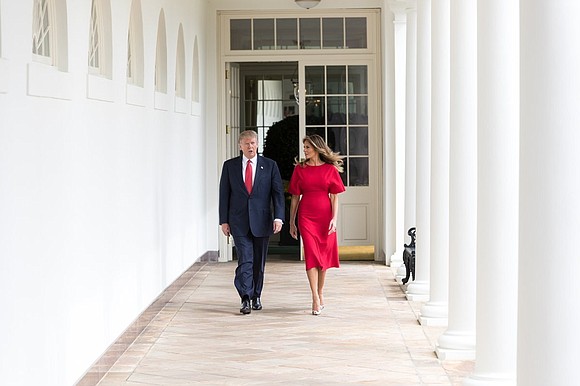There's a new Democratic agenda taking shape. It's more and more progressive. Can it survive success?
CNN/Stylemagazine.com Newswire | 4/30/2018, 1:50 p.m.
Analysis by Gregory Krieg, CNN
(CNN) -- Entering 2017, and the dawn of the Trump era, the prevailing hit on suddenly powerless Democrats was that they had no message and, worse, no ideas. When it came to political combat, the party had been schooled by the President-elect, who understood that millions of Americans were hungry for some sort of populist revival.
Parts of this analysis pop up in the ongoing and often tedious debate over whether Sen. Bernie Sanders, handily defeated by Hillary Clinton in the Democratic primaries, would have been better positioned to beat Trump in the general election. One of the better arguments in Sanders' favor -- though no sure shot -- contends that voters who wanted to cast a ballot for a populist candidate in 2016 would have broken, if just barely, for the progressive brand if given the choice that November.
The score-settling Twitter skirmishes that litigate these points, every hour of every day, might be tiresome, but the underlying questions -- and answers -- are still relevant. What's become increasingly clear over the past year is that the Democratic Party of 2018 has broken cleanly in Sanders' direction. What that means for Sanders' aspirations is unclear. Pundits often err in conflating the message with the messenger, the politician with his politics. That Sanders' ideas are taking hold assures him, personally, of very little.
Still, it hardly requires a Capitol Hill press badge, or regular contact with party poobahs, to see where Democrats are headed -- and how they are setting up to govern if they can regain control of Congress and the White House.
In less than a year, beginning around when Republican efforts to tear down Obamacare and scale back Medicaid were ramping up, members of the Senate Democratic caucus have crafted no fewer than five pieces of legislation that would expand Medicare to cover more -- or all -- Americans. A new bill this week from New Jersey Sen. Cory Booker would create a pilot program for a federal jobs guarantee. Democratic Sens. Elizabeth Warren, Jeff Merkley, Kamala Harris and Kirsten Gillibrand are all cosponsors. Sanders' more comprehensive version is on the way. Gillibrand also introduced legislation this week that would require the US post office to offer bank services, effectively creating a public option for personal banking. The list goes on.
To varying degrees, these bills have one crucial thing in common: they take steps toward removing private industry -- and with it, profit motives -- from critical aspects of public life. Unlike Obamacare, which required Americans to obtain health coverage, offered subsidies or increased access to Medicaid to those who couldn't afford it, the new crop of Democratic policy pitches largely remove the middle man. Implicit is the argument that government should protect citizens from destitution, but that it should take an affirmative role in seeking to improve their lives.
This marks a return, in large part, to the Democrats' "New Deal" ethos. It's not a coincidence progressives have been citing President Franklin D. Roosevelt's "Second Bill of Rights" in some recent messaging. Nor that the party named its official policy slate, introduced last summer, the "Better Deal." Though snarked upon by some at the time, and largely drowned out initially by, of all things, the unusual public exhibition of Jared Kushner's voice, it represented yet another sign of the Democratic establishment's shifting ideological moorings.
As Duke public policy professor William Darity Jr. told CNN recently, during a conversation about the growing support among Senate Democrats for the jobs guarantee policy he's helped craft and push for years, the party's decades-old habit of "self-censoring themselves before they put forth legislation to be considered" seems to be diminishing.
Still, there remains considerable worry within liberal circles about the prospect of ceding too much influence to the progressive left. The behind-the-scenes jockeying to clear contested midterm primary fields is one contentious battleground. Others will pop up when -- and if -- Democrats actually win a congressional majority this fall. While the House is very clearly in touching distance, the Senate will be a much tougher nut to crack. How Democratic officials would interpret their mandate, should their resistance be so empowered, is an open question.
Being shut out of power so completely, as the Democrats are now, can be liberating. It's in the party's DNA to regard the responsibility of governing as a most serious task, and certainly not one to be trifled with by a person or organization adjudged to be insufficiently savvy or pragmatic.
The opening of the floodgates for these bold new progressive bills has been, at least in part, a result of the freedom created by Trump and the GOP's grip on Congress. For all the work and advocacy that's gone into the new-look Democratic legislation, the documents remain -- for now -- little more than glorified press releases.




